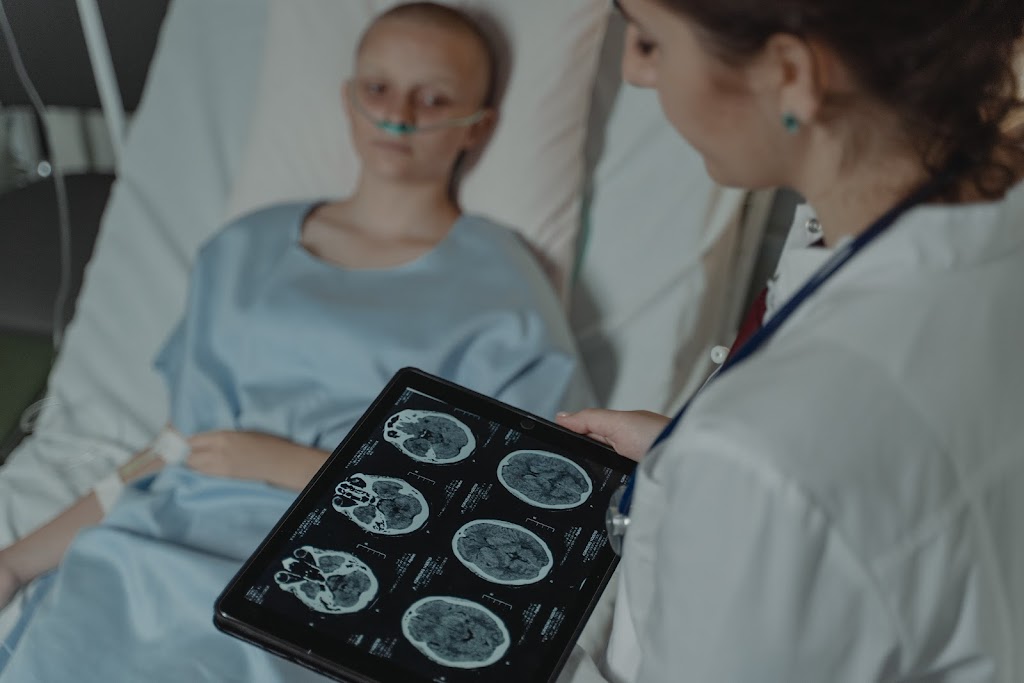The human brain is a remarkable organ that controls our thoughts, emotions, movements, and bodily functions. However, it is also vulnerable to various illnesses that can significantly impact our quality of life. Understanding the different types of brain illnesses is crucial for recognizing symptoms, seeking appropriate treatments, and taking preventive measures. In this blog post, we will delve into the world of brain illness types, exploring their symptoms, causes, treatments, and ways to maintain optimal brain health.
Brain Tumors:
Brain tumors are abnormal growths within the brain that can be cancerous (malignant) or non-cancerous (benign). Symptoms may include headaches, seizures, cognitive changes, and personality alterations. Treatment options involve surgery, radiation therapy, and chemotherapy.
Stroke:
A stroke occurs when the blood supply to the brain is interrupted, leading to the death of brain cells. Symptoms include sudden weakness, numbness, difficulty speaking, and loss of coordination. Immediate medical attention is crucial, as treatments aim to restore blood flow and prevent further damage.
Traumatic Brain Injury (TBI):
TBIs result from a sudden blow or jolt to the head, disrupting normal brain function. Concussions, contusions, and diffuse axonal injuries are common types. Symptoms vary widely and can include headaches, dizziness, memory problems, and mood changes. Treatment involves rest, medication, and rehabilitative therapies.
Neurodegenerative Diseases:
Neurodegenerative diseases, such as Alzheimer’s, Parkinson’s, and Huntington’s, cause progressive damage to nerve cells in the brain. Symptoms may include memory loss, tremors, impaired movement, and cognitive decline. Although there is no cure, medications, therapies, and lifestyle modifications can manage symptoms.
Epilepsy:
Epilepsy is a neurological disorder characterized by recurrent seizures. Seizure types and symptoms vary, ranging from momentary loss of awareness to convulsions. Anti-seizure medications are the primary treatment, while surgery and lifestyle adjustments may be considered for severe cases.
Mental Health Conditions:
Brain illnesses also encompass various mental health conditions, including depression, anxiety disorders, bipolar disorder, and schizophrenia. These conditions affect emotions, thoughts, and behaviors, often requiring a combination of therapies, medications, and support systems.
Neurodevelopmental Disorders:
Neurodevelopmental disorders, such as autism spectrum disorder and attention-deficit/hyperactivity disorder (ADHD), affect brain development and function. Symptoms can manifest early in childhood, impacting social interactions, communication, and cognitive abilities. Early interventions, therapies, and educational support are vital.
Infectious Diseases:
Certain infections, such as meningitis, encephalitis, and neurosyphilis, can directly affect the brain, causing inflammation and damage. Symptoms may include fever, headache, confusion, and neurological deficits. Treatment involves targeted antimicrobial medications and supportive care.
Genetic Disorders:
Genetic disorders like Down syndrome, fragile X syndrome, and Tay-Sachs disease can result in brain abnormalities and intellectual disabilities. Management focuses on early diagnosis, supportive care, and therapies tailored to the specific disorder.
Vascular Disorders:
Vascular disorders affect the blood vessels supplying the brain, leading to conditions like vascular dementia and transient ischemic attacks (TIAs). Symptoms of vascular disorders include memory loss, difficulties with reasoning, and mini-strokes. Lifestyle changes, medication, and surgical interventions may be recommended for treatment.
Autoimmune Disorders:
Autoimmune disorders, such as multiple sclerosis and autoimmune encephalitis, occur when the immune system mistakenly attacks the brain and spinal cord. Symptoms vary widely and can include fatigue, muscle weakness, cognitive impairment, and sensory disturbances. Treatment focuses on suppressing the immune response and managing symptoms.
Substance Abuse-Related Disorders:
Substance abuse can lead to brain-related disorders, such as substance-induced psychosis, cognitive impairment, and addiction. Treatment involves detoxification, counseling, behavioral therapies, and support groups to promote recovery and minimize brain damage.
Sleep Disorders:
Sleep disorders, including insomnia, sleep apnea, and narcolepsy, disrupt the normal sleep-wake cycle, impacting brain function and overall well-being. Symptoms range from difficulty falling asleep to excessive daytime sleepiness. Treatment options include lifestyle modifications, sleep hygiene practices, and medical interventions.
Movement Disorders:
Movement disorders like Parkinson’s disease, essential tremor, and dystonia involve abnormalities in motor control. Symptoms include tremors, rigidity, impaired coordination, and involuntary movements. Medications, physical therapy, and deep brain stimulation are commonly used treatments.
Cognitive Disorders:
Cognitive disorders, such as vascular dementia and frontotemporal dementia, cause progressive decline in memory, thinking, and reasoning abilities. Treatment focuses on managing symptoms, promoting cognitive function, and providing support to patients and their families.
By familiarizing yourself with these various brain illness types, you can better understand the associated symptoms, causes, treatments, and preventive measures. Remember, early detection and intervention are often key to managing brain illnesses effectively. Prioritizing brain health through a balanced lifestyle, regular exercise, mental stimulation, and a nutritious diet can also contribute to overall well-being.
Enhance your knowledge and empower yourself to make informed decisions regarding brain health. Stay proactive, seek professional advice when necessary, and support ongoing research to advance our understanding and treatment of brain illnesses. Together, we can promote brain health and improve the lives of individuals affected by these conditions.





